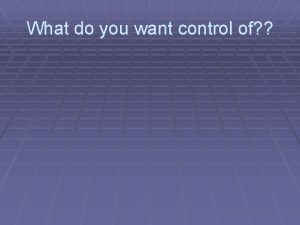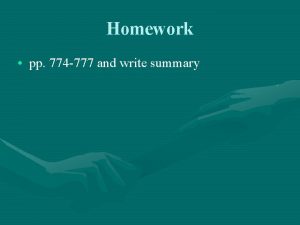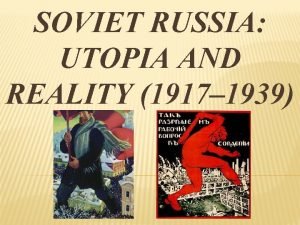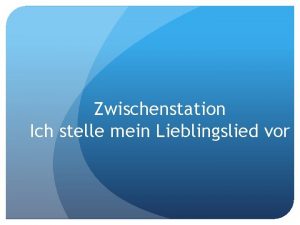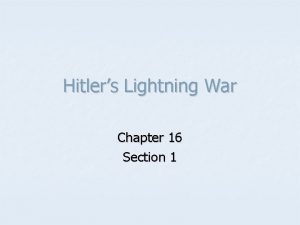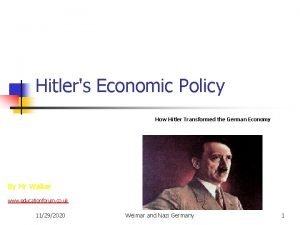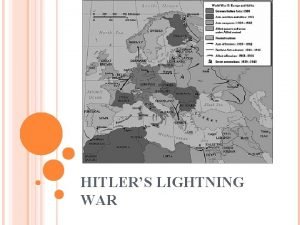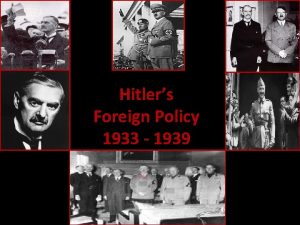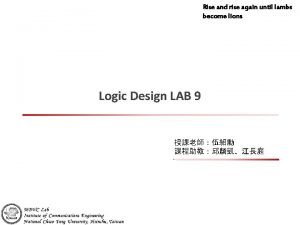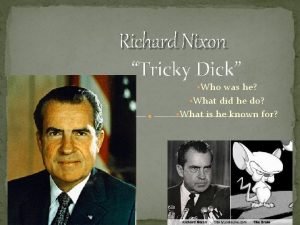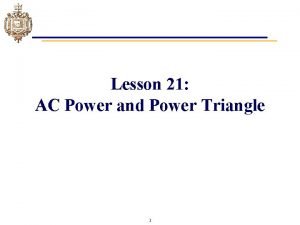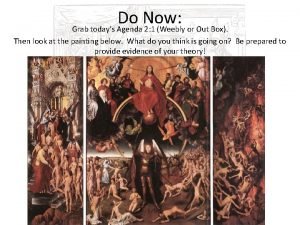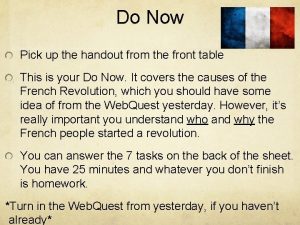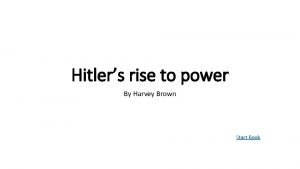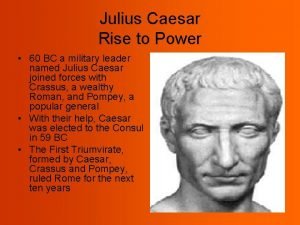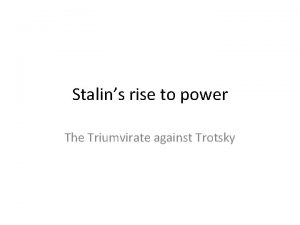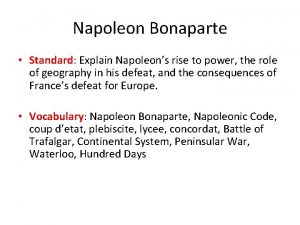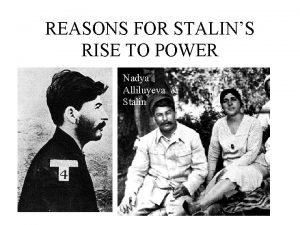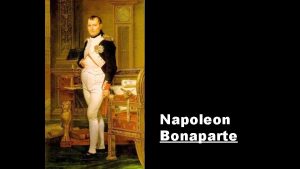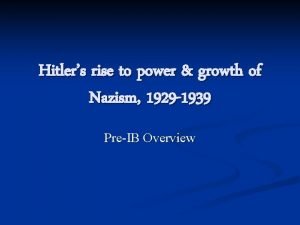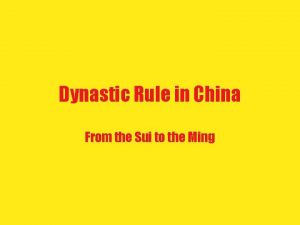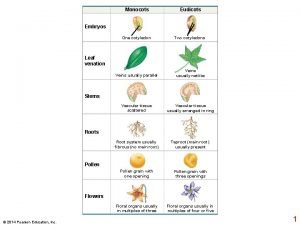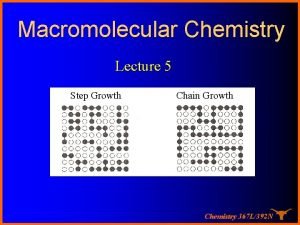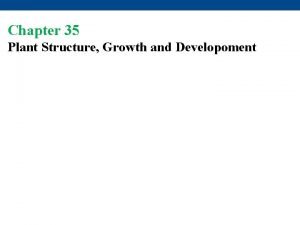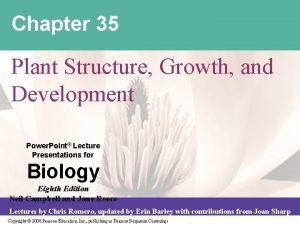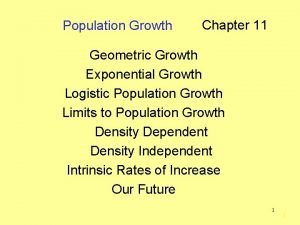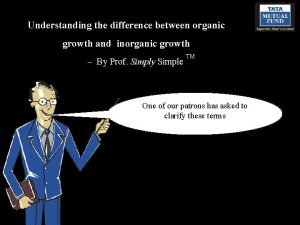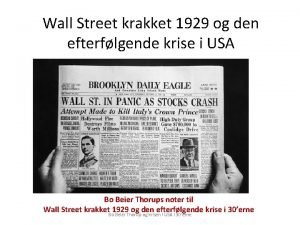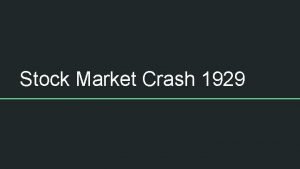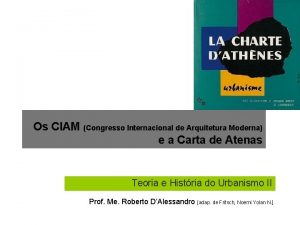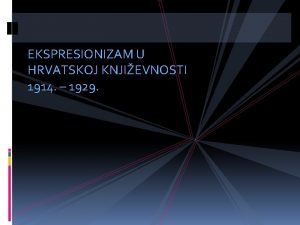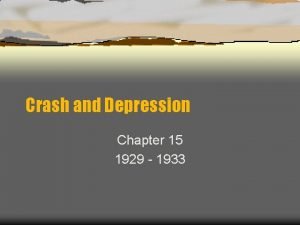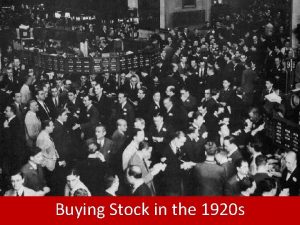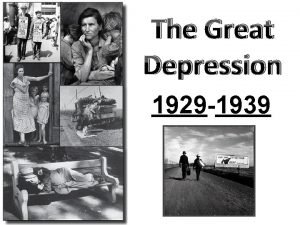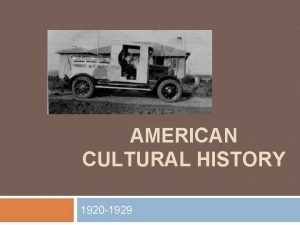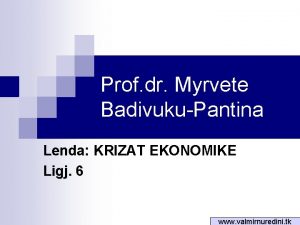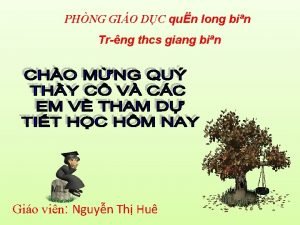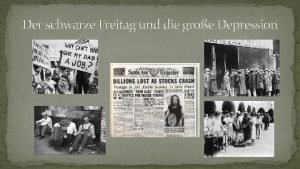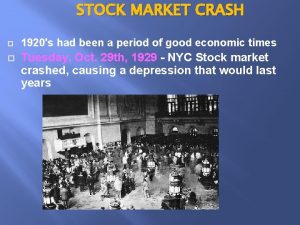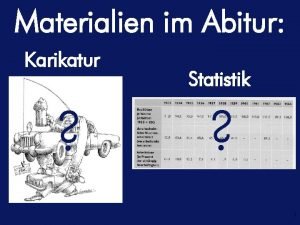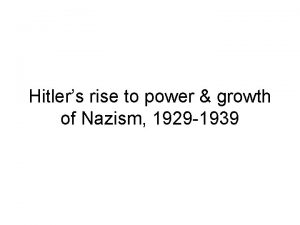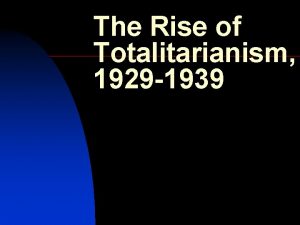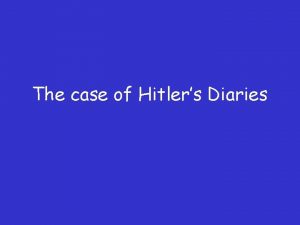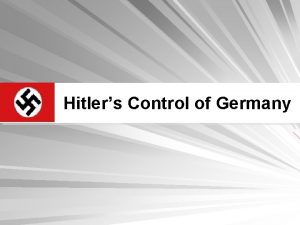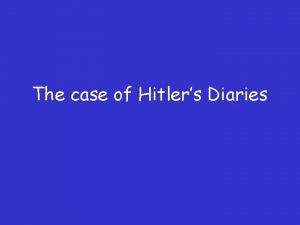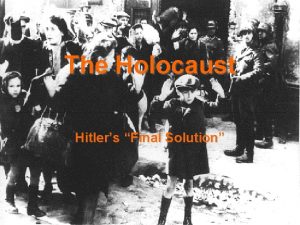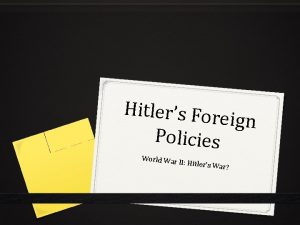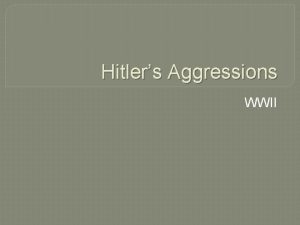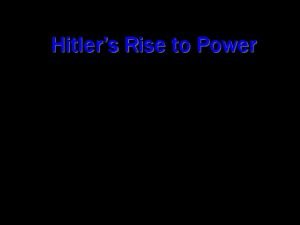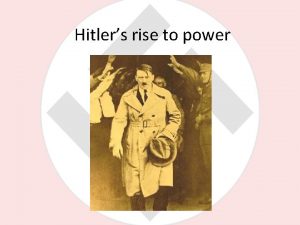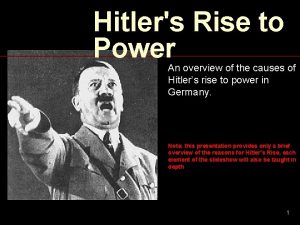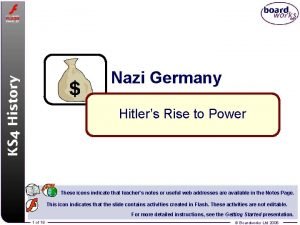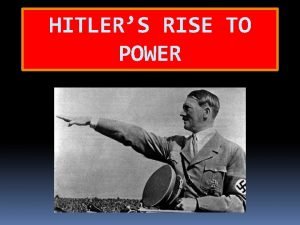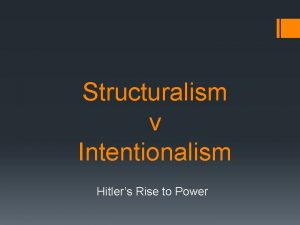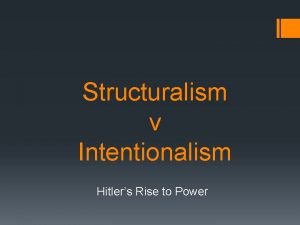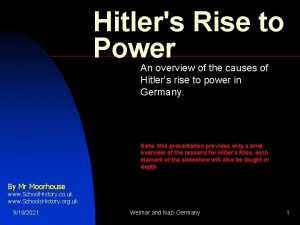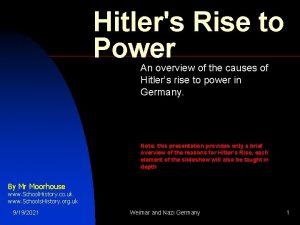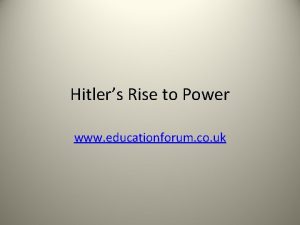Hitlers rise to power growth of Nazism 1929





















































- Slides: 53

Hitler’s rise to power & growth of Nazism, 1929 -1939 Pre-IB Overview

“In 1929 the golden age of the Weimar Republic came to an end. This was caused by an economic crisis that created political problems. These problems in turn led to the total collapse of democracy in Germany. ” Modern World History, p. 152

At the end of this lesson you should be able to: n Identify and explain a number of factors that led to the rise of the Nazi party n Recognise that no single factor led to Hitler’s rise n

1919 -1923 REVIEW n n . . Many Germans were disillusioned after the defeat in the First World war. Ex-soldiers felt that they had been ‘Stabbed in the back’ and felt that they had not been defeated on the battlefield. Many of them joined Right Wing groups such as the Freikorps or the Nazi party. The Spartacist rising, amongst others, led to many people fearing a Communist revolution in Germany. People looked to right Wing groups to act against this: the Freikorps in particular. Economic hardship was coupled with humiliation as a result of the terms of the Treaty of Versailles. Right Wing groups gained popularity by saying that they would not adhere to it’s terms.

How did the Nazi party gain support in this period? Fancy military uniforms demonstrated strength at a time when the government was weak n Violence against communists and Trade unionists was popular with businesses n Populist policies and rhetoric were employed to discredit opponents and develop support. n References to traditional values and reminders of ‘Who was to blame’ for the economic crisis built support. n

n n n n Whilst in prison Hitler analysed his strategy His political strategies were developed and refined Shift to winning electoral support Development of propaganda tools (Goebbels) Attempted to win support of big business Focussed on traditional values Builds fear of Left Wing groups Continued use of military imagery BUT….

n There was a lack of electoral support for him due to relative prosperity in Germany at the time As we all know this already, we shall examine how he gained that support

What we’ll examine today: Economic causes Political causes Hitler’s tactics

Economic causes Wall Street Crash (October 1929) n American banks demanded repayment of loans n German businesses slumped or went bankrupt n Statistics: 1. 8 million unemployed (1928) 6 million (1932) Remember these numbers as they will be useful in your final exam!!! n

Economic effects People could not afford rents or mortgages n Shantytowns & ghettoes (like Wang. Jing) n Begging on streets (worse than Sanlitun) n People lost faith in Weimar Republic n Growth of political extremists n

Political causes Streseman died, October 1929 n Disagreement among coalition parties (Centre Party & SPD) n 3 alternatives: print more money cut unemployment raise taxes n

What were the problems with all these alternatives?

Political causes Hermann Muller (leader of SPD) refused to cut benefits to save money and resigned n Heinrich Bruning (leader of Centre Party) lacked support in Reichstag and used Article 48 to pass legislation. I had said in class that Hindenburg’s Gov’t was more willing to use Article 48 than the previous Gov’t under Ebert. n

In effect, Weimar democracy came to an end in 1930.

Hitler’s tactics Support for Nazis grew rapidly, 1929 -32 n Hitler toured air by aeroplane n Speeches (he was now able to speak publicly. As many wrote in your essays, his inability to do so made the Nazis lose support up to now. n Modern technology, microphones & radio n

Hitler’s tactics n n Joseph Goebbels responsible for propaganda Nazis owned 8 newspapers

Hitler’s tactics n Wealthy supporters. Johndclare. net , mentions a few: Alfred Hugenberg (leader of German National Party & newspaper owner); Thyseen (steel manufacturer) Krupp IG Faben Opel Henry Ford Irenee du Pont

Hitler’s tactics n n n SA Numbers increased to 400, 000 by 1932 Street battles, bullying tactics

Who did Hitler & the Nazis appeal to?

Positives Consider each Group Negatives General appeal Elite Workers & Peasants Racial minorities Young Women

General appeal ‘Stabbed in the back’ theory of the Treaty of Versailles n Failures of Weimar Republic, n Exploited suffering caused by Great Depression n Anti-semitism n

Elite n n n Feared a communist uprising (think of USSR) Supported Nazis (e. g. paid for Nazi electoral campaigns) Lost confidence in Weimar Republic Suspicious of Hitler’s background – hoped to control him within government (using Hindenburg & von Papen) Traditionally supported Nationalist Party

Workers & Peasants n n n Farmers Badly affected by Depression and slump in food prices Nazis promised financial support & incentives for farming communities Naturally supported socialists & communists

Workers & Peasants n n Germany suffering from economic depression 6 million unemployed (1933) Nazis promised to end unemployment & financial hardship Traditionally supported socialists & communists

Racial minorities No discrimination under Weimar governments n Hitler made Jews scapegoats for Treaty of Versailles n Anti-Semitism in Nazi Party (e. g. Mein Kampf) n

The young n n Disappointed with Weimar Government Attracted by career opportunities within Nazi Party Impressed by activities of Hitler Youth Movement Joined Hitler Youth to rebel against family constraints

Women n Greater emphasis on role of women as mothers & housewives Improved women’s rights under Weimar Republic n Nazi opposed to female careerism n

Women - Your task How useful is Hitler’s speech in understanding the views attitudes of Nazis towards women? n How far do the sources agree with each other? (i. e. have similar views on the role of women) n How reliable is Utta Rudiger’s account of Hitler’s speech in Dusseldorf in 1932 n

Women n n Disliked move away from traditional family values in Weimar Constitution Liked Nazi appeal to family & emphasis on role of women as mothers & housewives

Women The so-called granting of equal rights to women, which Marxism demands, in reality does not grant equal rights but constitutes a deprivation of rights, since it draws the woman into an area in which she will necessarily be inferior. The woman has her own battlefield. With every child that she brings into the world, she fights her battle for the nation. Adolf Hitler, speech (September, 1935)

Women We were told from a very early age to prepare for motherhood, as the mother in the eyes of our beloved leader and the National Socialist Government was the most important person in the nation. We were Germany's hope in the future, and it was our duty to breed and rear the new generation of sons and daughter. These lessons soon bore fruit in the shape of quite a few illegitimate small sons and daughters for the Reich, brought forth by teenage members of the League of German Maidens. The girls felt they had done their duty and seemed remarkably unconcerned about the scandal. Isle Mc. Kee was a member of the German Girls' League, later recalled her experiences in her autobiography.

Women have the task of being beautiful and bringing children into the world, and this is by no means as coarse and oldfashioned as one might think. The female bird preens herself for her mate and hatches her eggs for him. In exchange, the mate takes care of gathering the food and stands guard and wards off the enemy. Joseph Goebbels, speech in Munich (1939)

Women n It was a huge hall and everyone was waiting for Hitler to arrive. . . I must say it was an electrifying atmosphere. Even before 1933 everybody was waiting for him as if he was a saviour. Then he went to the podium. I remember it all went quiet, and he started to speak in his serious voice. Calm, slow, and then he got more and more enthusiastic. I must admit, I can't remember exactly what he actually said. But my impression afterwards was: this is a man who does not want anything for himself, but only thinks about how he can help the German people. Utta Rudiger, heard Adolf Hitler speak in Dusseldorf in 1932.

How did Hitler become Chancellor in 1933?

Political developments n March 1932 Hitler challenged Hindenburg for the presidency n He lost by 19. 4 million votes to 13. 4 million Hindenburg – the winner!

Political developments n May 1932, Chancellor Bruning resigns due to rising unemployment Chancellor Bruning – not a happy man!

Political developments n May 1932 Von Papen becomes Chancellor Von Papen – aristocratic & respected

Political developments n July 1932 Von Papen calls a general election to win more seats for Centre Party n Nazis win __? __ seats

Poltical developments n n Schleicher – the military man! n November 1932, Von Papen holds new elections but fails again to win more seats for Centre Party Hindenburg replaces von Papen with General Kurt von Schleicher Nazis win __? __ seats

Political developments n Von Schleicher resigns when Hindenburg refuses to continue to govern using Article 48

Poltical developments n n January 1933, Hindenburg appoints Hitler as Chancellor Von Papen is appointed Vice Chancellor

Your task n Why do you think Hindenburg appointed Hitler as Chancellor, especially as the Nazis were becoming less popular?

How did the Nazis consolidate power, 1933 -4?

Lesson overview Reichstag fire Political parties Elections Enabling Act Trade unions Night of the Long Knives

Reichstag fire 27 February 1933, Reichstag building burns down n Marinus van der Lubbe, communist, arrested & admits guilt n Communist plot feared – leaders imprisoned n Article 48, state of emergency imposed n

Elections March 1933 election to Reichstag n Hermann Göring, Minister of the Interior, ordered police to leave SA alone n Opponents, e. g. SDP & KPD forbidden from campaigning under terns of state of emergency n

Elections

Elections Hitler needed 2/3 majority n Won support of Nationalists & Centre Party (promising to defend RC Church) n Banned Communist Party n

Enabling Act March 1933, Enabling Act n SA & SS present during vote n 444 members for v. 94 against n

Political parties Law against the Formation of Parties n KPD & SPD leaders arrested & imprisoned in concentration camps n n Germany a one party state

Trade Unions TUs powerful during Weimar Republic n Depression weakened political influence & membership n 2 May 1933, TU offices occupied by Nazis & leaders arrested & imprisoned n Labour Front (DAF) n

Night of Long Knives 30 June – 1 July 1934 leaders of SA arrested & shot n Ernst Röhm (leader of SA) n George Strasser (founder of DAP) n Schleicher (former Chancellor) n 200 deaths n

Why did Hitler purge the SA? Rohm & others feared as revolutionaries n Growth in membership to 2 million by 1934 n Removal of potential opponents n Pressure from within SS (e. g. Himmler) n Concession to conservative elite n Concession to army (Reichswehr) – August 1934 swear oath of personal loyalty n
 Nazism
Nazism Nazism
Nazism Nazism vs communism
Nazism vs communism Hitlers lieblingslied
Hitlers lieblingslied Chapter 16 section 1 hitler's lightning war
Chapter 16 section 1 hitler's lightning war Hitlers economic policy
Hitlers economic policy Who were hitlers parents
Who were hitlers parents Hitlers lightning war
Hitlers lightning war When was the league of nations created
When was the league of nations created Rise and rise again until lambs become lions
Rise and rise again until lambs become lions Tricky dicky richard nixon
Tricky dicky richard nixon Little lambs academy
Little lambs academy Rise and rise again until lambs become lions origin
Rise and rise again until lambs become lions origin Power triangle
Power triangle Rise of power
Rise of power Sequencing napoleon's rise to power
Sequencing napoleon's rise to power Lion prince of mali
Lion prince of mali Harvey rise to power
Harvey rise to power Julius caesar's rise to power
Julius caesar's rise to power Stalins rise to power
Stalins rise to power Napoleon bonaparte description
Napoleon bonaparte description Nazi partys
Nazi partys Stalins rise to power
Stalins rise to power Napoleonov grob
Napoleonov grob Julius caesar rise to power
Julius caesar rise to power How did hitler rise to power
How did hitler rise to power Whats the dynastic cycle
Whats the dynastic cycle Absolute growth rate and relative growth rate
Absolute growth rate and relative growth rate Shoot system
Shoot system Carothers equation
Carothers equation Primary growth and secondary growth in plants
Primary growth and secondary growth in plants Primary growth and secondary growth in plants
Primary growth and secondary growth in plants Geometric growth vs exponential growth
Geometric growth vs exponential growth Neoclassical growth theory vs. endogenous growth theory
Neoclassical growth theory vs. endogenous growth theory Organic growth vs inorganic growth
Organic growth vs inorganic growth Ruhrkampf ursachen
Ruhrkampf ursachen Wall street krakket
Wall street krakket Stock market crash in 1929
Stock market crash in 1929 Stock market cartoon
Stock market cartoon Black tuesday political cartoon
Black tuesday political cartoon Tectonic plates canada
Tectonic plates canada Ciam urbanismo
Ciam urbanismo Mitski realizam
Mitski realizam Ekspresionizam u hrvatskoj književnosti ppt
Ekspresionizam u hrvatskoj književnosti ppt October 29 1929
October 29 1929 Mammoth oil company 1920
Mammoth oil company 1920 Rrr great depression
Rrr great depression Resisting length of hill road
Resisting length of hill road 1929 trivia
1929 trivia Sistemi monetar nderkombetar
Sistemi monetar nderkombetar đây là nước nào
đây là nước nào Schwarzer freitag 1929 datum
Schwarzer freitag 1929 datum 1929 stock market crash
1929 stock market crash Mori methode übungen
Mori methode übungen
